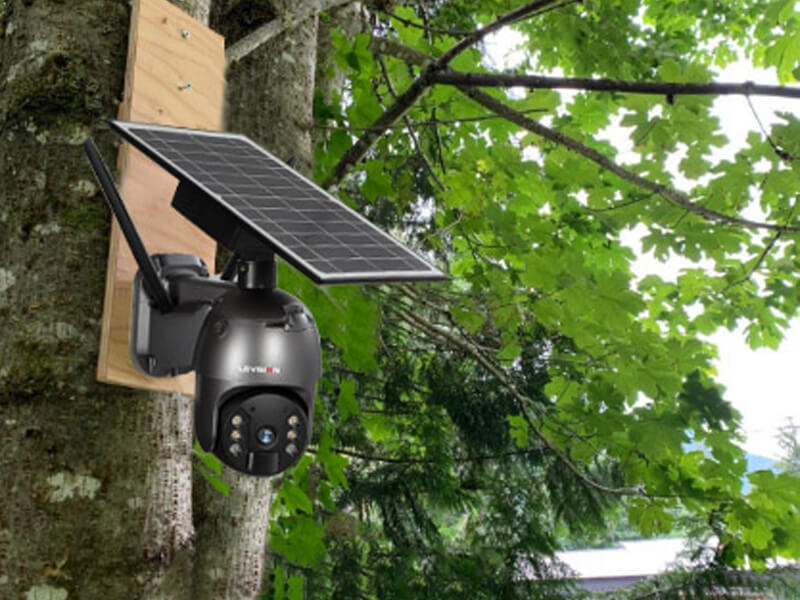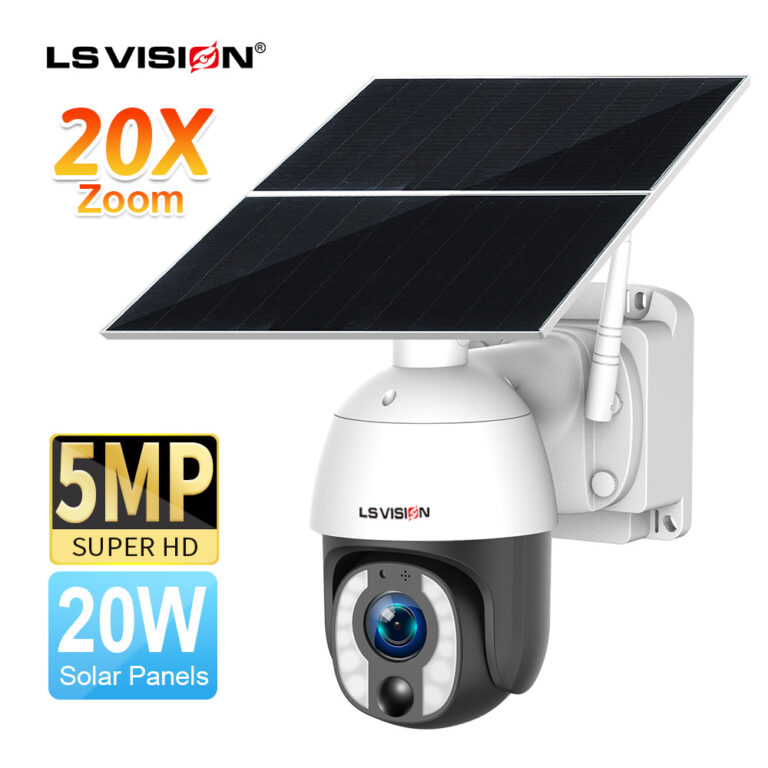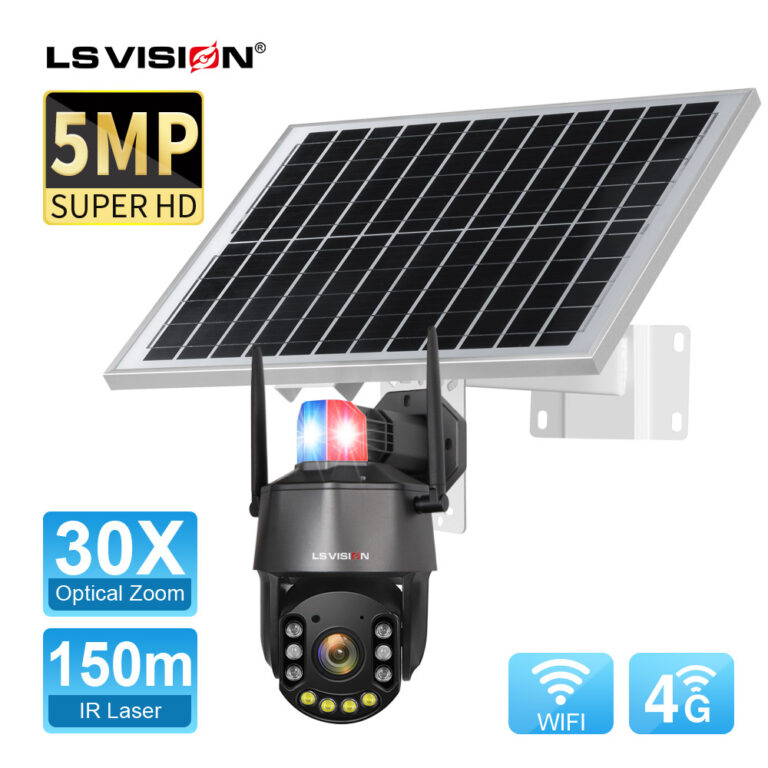As the demand for video surveillance systems continues to increase, the main difficulty of outdoor surveillance is that the problems of power supply and network transmission have also been solved. Recently, solar cameras that can be used in situations where there is no network and no electricity have become more and more popular.
What is solar surveillance camera?
Solar surveillance cameras refer to surveillance cameras powered by solar panels. This solar surveillance is a suit which included storage batteries, solar panels, solar mounts, surveillance bullet cameras or surveillance dome cameras, and 4G sim card (traffic cards) for transmission. , TF memory card for storing video. The biggest difference between ordinary ip surveillance cameras is the different power supply methods. Solar surveillance cameras generally support flow card signal transmission.

What are the advantages of solar surveillance cameras?
1、Simple installation: no need to connect to the controller, just install it yourself, no need to hire construction personnel;
2、Monitoring angle: 360-degree monitoring without dead ends, with zoom can also adjust the monitoring distance;
3、No need to connect to electricity: Solar cells convert light into electricity and the built-in battery pack exchanges power supply, which can be used directly in the scene where the utility power is not connected;
4、No wiring: no need to go through the wall, no need to destroy the decoration, and no long-distance power transmission;
5、Ready to install and use: It is not limited by distance, and the network is stable, and it can be watched remotely in real time;

What are the disadvantages of solar surveillance cameras?
1、The disadvantage is that audio and video signals are transmitted through traffic, and the traffic cost is more expensive;
2、Solar monitoring is a wireless monitoring with a solar system installed. Affected by the signal strength of the installation site, fluctuations may occur during remote monitoring;
3、After the stored electric energy in the battery is used up, if the solar panel receives weak light and the power supply is insufficient, the continuous operation of the monitoring cannot be guaranteed;

How to solve the shortcomings of solar monitoring?
1. Solar monitoring can be connected to WiFi or inserted into 4G card to connect to the Internet, and signal reception can be enhanced through signal reception enhancement devices;
2. Except for continuous cloudy and rainy days that cause insufficient light, when the sun is strong, the solar battery can be fully charged to ensure the power supply for the monitoring.
Which one is better, a solar-powered camera or an ordinary mains-powered camera?
The biggest difference between Solar Powered Security Cameras and ordinary surveillance cameras is that they have added some special configurations for scenarios where there is no mains power, so that surveillance cameras can cover more scenes. Therefore, it is not appropriate to say which is better separately, but to choose which camera is more suitable according to the use scene.

Points to note when installing solar monitoring:
1. There should be no obstructions above the solar panel, so as not to affect the light and electric energy conversion of the solar system;
2. The installation of solar monitoring must be stable and not easy to change to prevent the monitoring video from shaking;
3. Do not pull or twist the connection line on the surveillance camera to prevent power supply problems;
4. Insert a 4G card if the signal is unstable, you can build a wireless bridge to ensure smooth transmission of images.

Solar energy monitors the power supply time when the battery is fully charged
1. The 40W solar panel is equipped with a 15Ah battery, which can be fully charged in 7.5 hours under sufficient sunlight, and can supply power for 15 hours in rainy days;
2. The 50W solar panel is equipped with a 20Ah battery, which can be fully charged in 8 hours under sufficient sunlight, and can supply power for 20 hours in rainy days;
3. The 60W solar panel is equipped with a 20Ah battery, which can be fully charged in 6 hours under sufficient sunlight, and can supply power for 20 hours in rainy days.












